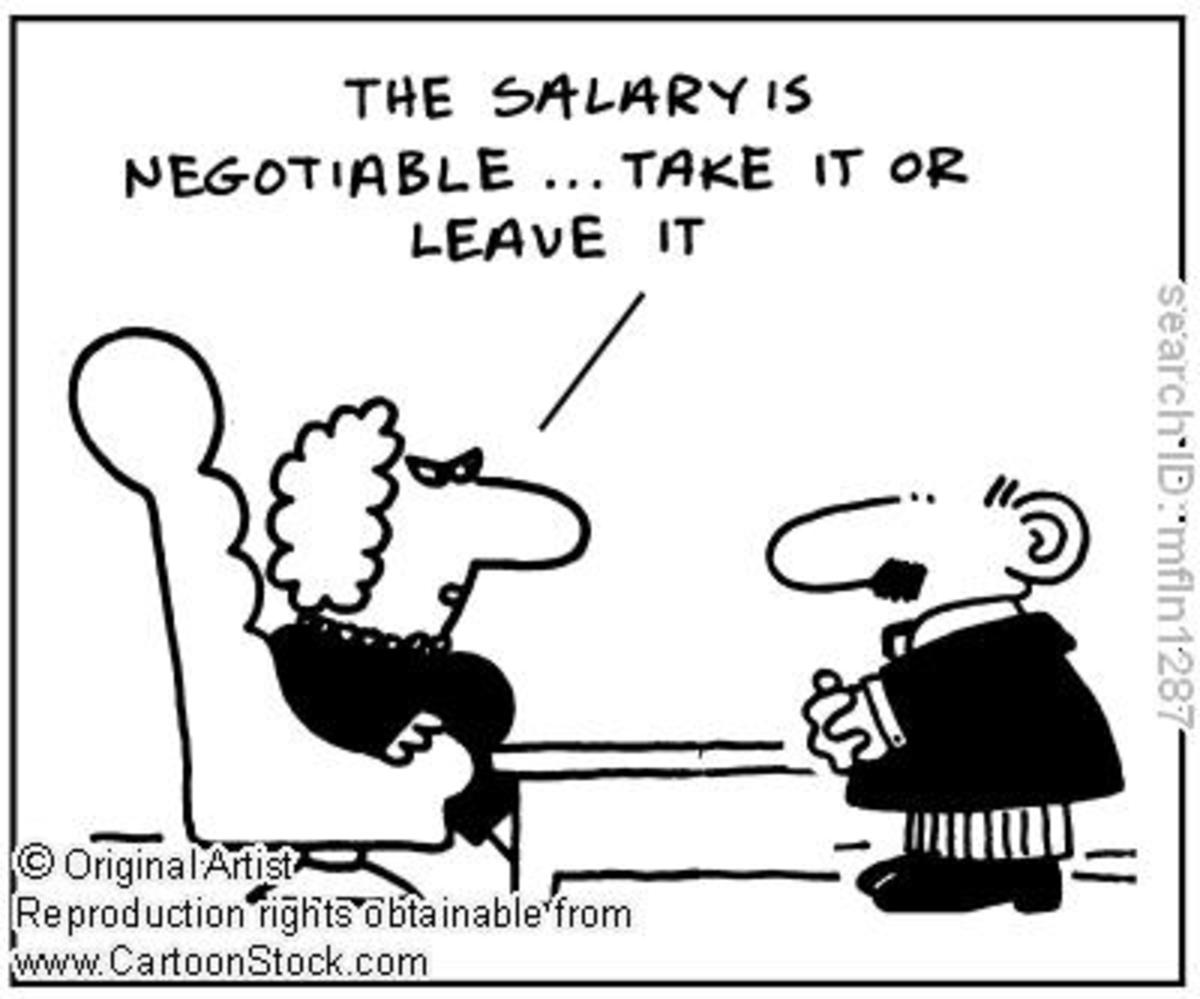The Six Key Points to Salary Negotiations.

This hub is part of the Job Interview set of Hubs I have made, and there is a link here and at the end of this hub, if you wish to check it out.
Negotiating a salary is always a headache and a hassle but it has to be done, for those among us who have the option. It is part of the job Interview process. We can be good interview subjects but lousy negotiators when it comes to money or salary. There is no denying that some people find negotiation very uncomfortable and unsettling. Remember, that if it is possible to negotiate for more, then you should definitely explore that option. There is no shame in this. Some businesses start off with a low figure anyway, knowing too well that the respondent will talk it up. That extra money can make an unbelievable difference. It helped me to buy my own home in my early 20’s. So it can’t be bad. In the Six steps I am going to list here, there is as much philosophy as there is advice, though I keep it to a minimum.
It can be easier to hold out for more money when you are in the process of being offered a job – rather than trying to get a raise when you actually have the job, but the negotiation is essentially the same.
1. Know your positions of power. So just who is holding the cards, so to speak? Each side has something that the other wants. You want their job and salary, they want your skills and experience. Usually the one that wins will be the one who holds more positions of power.
2. Evaluate the consequence of non-agreement. No wonder some hate the negotiation process. But think, what happens if neither side is happy? What if you know lots of people who do this type of work and they are all getting higher money? While you have to listen to “Discount Harry” moaning about how tight things are, and how money just isn’t there. Whoever stands to gain the most from completing the deal will generally lose out in the negotiation.
3. Use bargaining tools. Is there anything extra either side can add or remove from an offer that is of value to the other side? This can often be the centre of most negotiations. Would you be prepared to forgo a company car allowance if they were able to get a salary closer to what you are looking for?
4. Don’t rush it. Remember – if specific salary numbers are discussed directly at an interview, be gallant and ask for time to consider any offer made to you rather than accepting on the spot. (You might be confident enough to tackle this, but defer on the side of caution if you need to. Was the figure offered within your ballpark? Don’t be pressured by anyone, least of all yourself.)
5. Be positive. If you approach the negotiation in the right way, your (potential) employer will be impressed, regardless of whether you eventually win or lose, and see it as another skill which you can bring to their business.
6. Close the deal. Make sure you have a record of the agreement down on paper which is signed by both parties. There is no point in winning a negotiation if you allow the other side to go back on their responsibilities at a later date. This is how almost every staff or worker dispute in the universe happens. Get it signed and in writing. Yes, it is a drag and a hassle, but “feel the fear and do it anyway”. Don’t feel bad or guilty afterwards. You will have taken a huge step forward. And when it is done, remember what progress you have made towards your own future and how it will affect you positively.
Feel free to rate this Hub. If you would like to read the other Hub on Key Questions and how to answer them in an interview, then visit it by clicking here. Check this link for 6 ways to get your CV noticed.
Copyright (c) 2010 to 2013 Cassy Mantis. All rights reserved.










